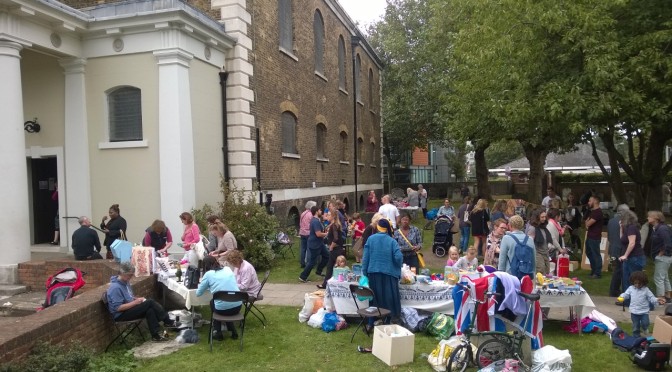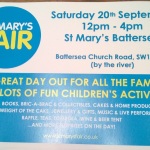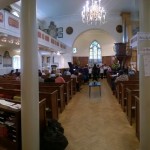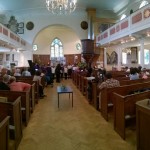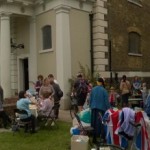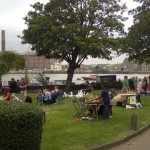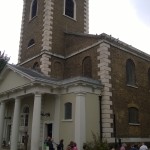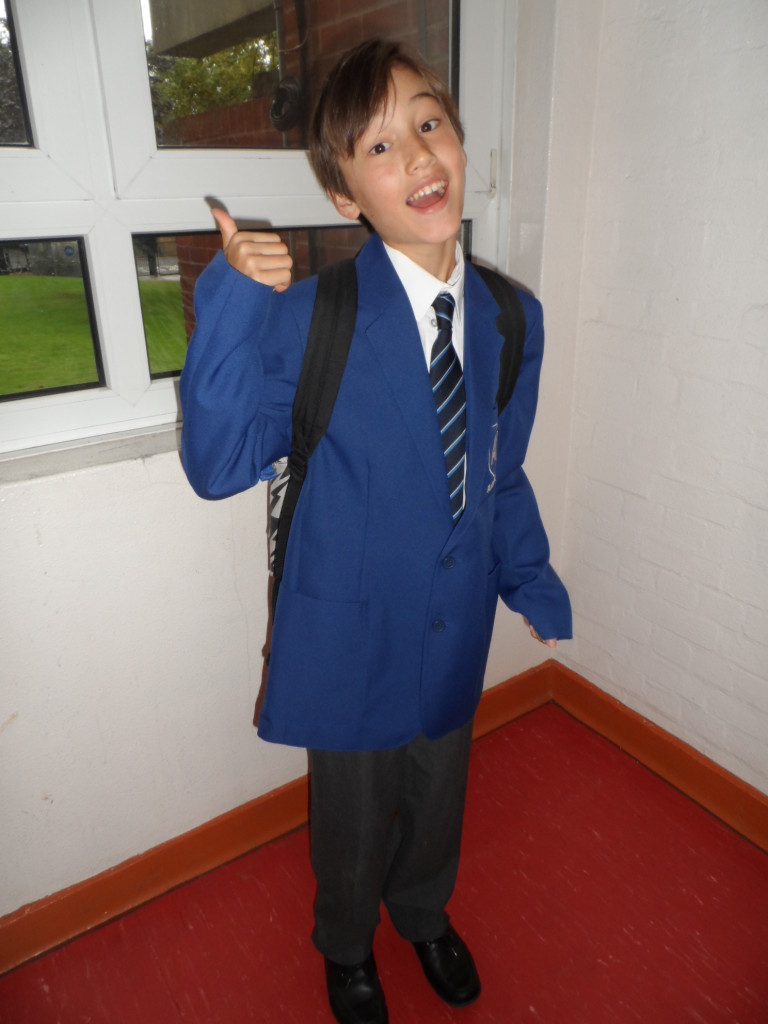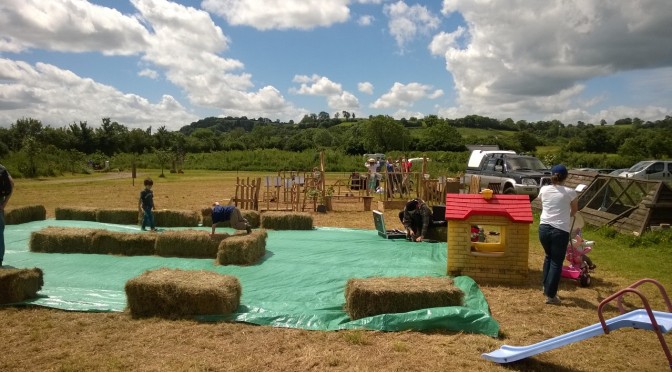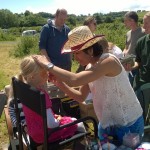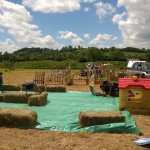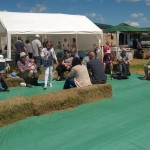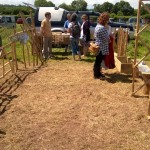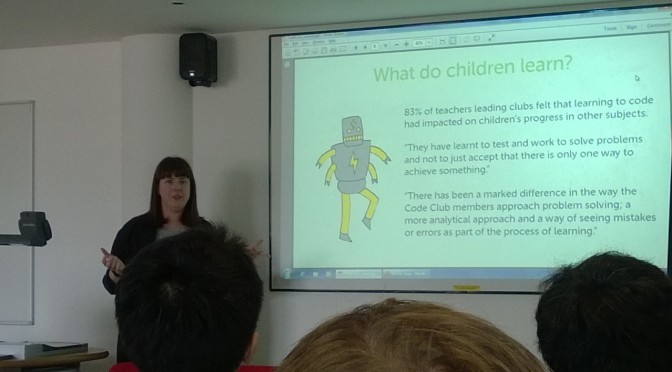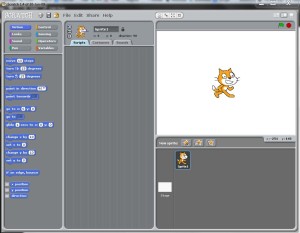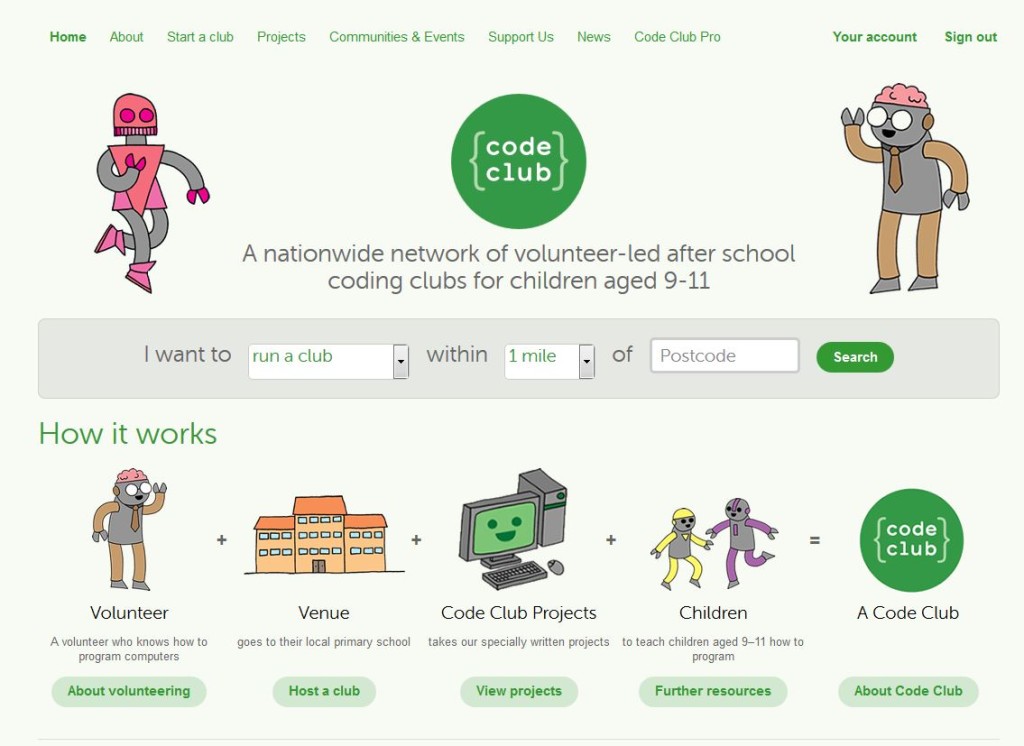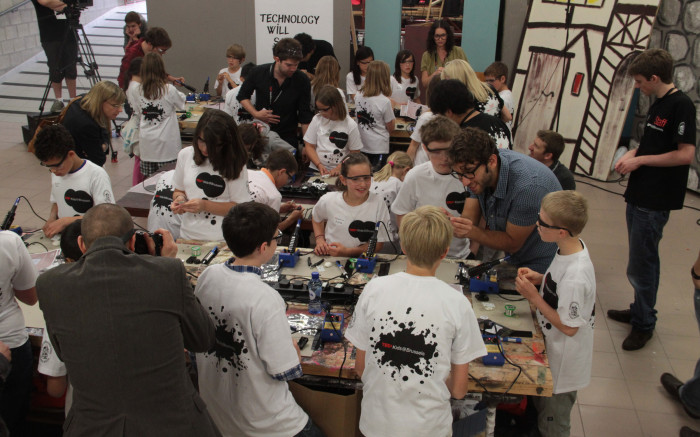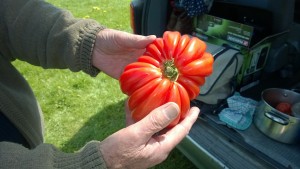Don’t think I’ve heard this since I were a schoolboy.
If you are able, it is probably best read in a northern accent:
Sam, Sam, Pick Up Tha Musket
It occurred on the evening before Waterloo,
As troops were lined up on parade.
And sergeant inspecting ’em, he were a terror,
Of whom every man were afraid.
All excepting one man, he were in’t front rank,
A man by t’name of Sam Small.
And he and t’sergeant were both daggers drawn,
They thought nowt of each other at all.
As sergeant walked past he was swinging his arms,
And he happened to brush against Sam.
And knocking t’musket clean out of ‘is hand,
It fell t’ground wi’ a slam.
‘Pick it up!’ said sergeant, abrupt like, but cool.
But Sam wi’ a shake of ‘is ‘ead.
Said ‘Seeing as tha knocked it out of my hand,
P’rhaps tha’ll pick t’ thing up instead.
Sam, Sam, pick up tha musket!
The sergeant exclaimed with a roar.
Sam said tha’ knocked it down reasonin’
Tha’ll pick it up, or it stays, where t’is on the floor.
The sound of high words very soon reached
The ears of an officer, Lieutenant Bird.
Who says to the sergeant ‘Now what’s all this ‘ere?’,
And the sergeant told what had occurred.
‘Sam, Sam, pick up thy musket !’,
Lieutenant exclaimed with some heat.
Sam says he knocked it down, reasonin he picks it up,
Or it stays where’t is at my feet.
It caused quite a stir when the Captain arrived,
To find out the cause of the trouble,
And every man there all, excepting old Sam,
Was full of excitement and bubble.
‘Sam, Sam, pick up thy musket!’,
Said Captain, for strictness renowned.
Sam says he knocked it down, reasonin he picks it up,
Or it stays where’t is on the ground.
The same thing occurred when the Major and Colonel
Both tried to get Sam to see sense.
But when old Duke of Wellington came into view,
Well then the excitement was tense.
Up rode the Duke on a lovely white horse
To ‘Find out the cause of the bother.’
He looked at the musket, and then at old Sam,
And he talked to old Sam like a brother.
‘Sam, Sam, pick up thy musket’, the Duke
Said as quiet as could be,
‘Sam, Sam-Sam-Sam, pick up thy musket.’,
Come on lad just to please me.
All right Duke says old Sam just for thee I’ll oblige,
And to show thee I meant no offence.
So Sam picked it up. ‘Gradely lad.’ said the Duke.
‘Righto boys let battle commence.’
The poem is, in fact, a traditional folk song which was written in 1929 and made famous by the actor Stanley Holloway [1890-1982] It is about the period before the Duke of Wellington’s famous battle at Waterloo against Napoleon in 1815.

